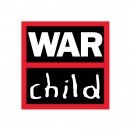Psychosocial project evaluation

Terms of Reference for a Final External Evaluation
Evaluation technical focus Psychosocial support for early adolescents in East Jerusalem
Project title “Advancing the Rights of Vulnerable Palestinian Children and Women in East Jerusalem”
Partner organizations Al Bustan Association, Mada Creative Centre, Athori Women Centre, Spafford Children’s Centre, Al Saraya Centre for Community Services and the Old City Youth Association
Geographical coverage: East Jerusalem (The Old City, Silwan and Athori)
Project lifespan From August 1st, 2015 to October 8th, 2017
Program/project budget
Maximum budget available for evaluation
Evaluation commissioning manager War Child Holland
Background, rationale and purpose of the evaluation
War Child Holland (WCH) is an independent and impartial, international and non-governmental organization which has been working in the occupied Palestinian territories (oPt) since 2004. WCH invests to secure a better future for children affected by armed conflict. The organization supports all children regardless of their religion, race, social status or gender. The basic premise of our work is the United Nations Convention on the Rights of the Child, and our primary role is providing protection and psycho-social support for children and training youth leaders on the concepts of development and child protection.
The “Advancing the Rights of Vulnerable Palestinian Women and Children in East Jerusalem” project ENPI/2013/323-493 was funded by the European Union and implemented in partnership with Heinrich Böll Foundation. WCH's psychosocial methodology - the DEALs intervention - has been an important component of this project.
WCH is seeking to hire a consultant to conduct a final evaluation on the relevance and efficacy of psychosocial interventions for children in selected communities in East Jerusalem (EJ).
WCH final beneficiaries:
-Young people (age 18-26)
-Children (age 10-14)
Overall objective of the project to be evaluated: This project will contribute to enhancing the human rights of vulnerable women, children and youth of EJ.
Specific objective of the project to be evaluated: Improved social, psychosocial, economic and cultural opportunities and well-being for vulnerable children, youth and women in EJ.
Expected results of the project to be evaluated:
WCH contributes only to the following result:
R2: Quality of and access to creative psychosocial support services and leisure activities for children and women in East Jerusalem improved.
Objectives of the evaluation:
The consultant shall verify, analyse and assess in detail the project outcomes vis-à-vis two of the five DAC evaluation criteria:
Relevance: The extent to which the objectives of the project are consistent with beneficiaries needs living in the targeted areas.
The analysis of relevance should focus on the following questions related to the project design:
- Make an overall independent assessment of the past performance of the project/ program, paying particularly attention to the impact of the project actions against its objectives; and assess how did the context influence the project strategy;
- The extent to which stated objectives correctly address the identified problems and psychosocial needs;
- The involvement of CBOs in the plan of the project, the level of local ownership.
Effectiveness: How far the project’s result was attained, and the project’s specific objective achieve, or are expected to be achieved.
The analysis of effectiveness should focus on the following issues:
- The extent to which the result of the project has been achieved, as perceived by key stakeholders (including children) and with reference to the agreed outcome indicators.
- Whether intended beneficiaries participated in the intervention.
- The effectiveness of management / operational procedures and whether these are in line with the project’s needs.
- War Child’s contribution and value added.
The assessment of effectiveness will particularly focus on:
- Entering or organising entry of almost 1000 SDQ and # KIDSCREEN questionnaires administered and collected pre- and post-interventions by participants of DEALs programme under this project in EJ and compared to data from similar groups in Gaza and the Jordan Valley (JV).
- Conducting and writing-up repeated measures analysis (alpha level .05) of pre- and post- questionnaires, including breakdown of differences by:
- Questionnaire subscale
- Geographic location (Gaza, JV and EJ)
- Gender
- Providing analysis of the convergence, or otherwise in findings between the two questionnaires to inform future M&E protocol
Scope of the evaluation
The evaluation approach should be developed and implemented as presented below.
Once the external evaluation team has been contractually engaged, the evaluation process will be carried out through four phases: Inception Phase, Data Collection/Entry Phase, Desk Phase, and a Synthesis Phase. Since the project implementation will finalized by the 8th of October 2017, the evaluation should begin with the field phase to be able to reach the beneficiaries and collect information from the field.
Inception phase
The Inception Phase should start upon signing the contract. The evaluation team should:
- Review systematically the relevant available documents
- Conduct meetings and interviews with stakeholder including project management at WCH, and partner CBOs to reach a clear understanding of the project components, beneficiaries, etc.
- Submit an inception report which:
- Describes the project, evaluation, and development co-operation context.
- Present an indicative methodology to the overall assessment of the project/program;
- Comments on the issues/evaluation questions suggested or, when relevant, proposes an alternative or complementary set of evaluation questions justifying their relevance.
- Submit a detailed work plan including:
- Activity timeline
- Quantitative data entry and analysis strategy, resourcing and timeline
- Qualitative data collection plan, including persons to be interviewed, dates of visit, itinerary, and name of team members in charge.
- Predicted final report structure, content, drafting and submission timeline
- Summarize plan at the end of the inception phase, discuss the reliability and coverage of data collection, and present preliminary findings in a meeting with the project management, and the reference group.
Deliverable: Inception report and activity plan
Data Collection/Entry Phase
In this phase, the evaluator should collect the qualitative data as detailed in the inception report, and conduct or coordinate the entry of the questionnaire data already collected by WCH.
Prior to qualitative data collection the evaluator should identify and present the list of tools to be applied in field data collection, and list all preparatory steps already taken for the data collection
Deliverables:
- Full SPSS dataset, anonymized and organised by case, with all items clearly labelled in English, containing all data from pre- and post-intervention SDQ and KIDSCREEN
- List of qualitative data collection tools and interview schedules
- Qualitative data/interview summaries, in English
Data analysis phase:
During the data analysis phase, the evaluator/s will be:
-Conducting and writing-up repeated measures analysis (alpha level .05) of pre- and post- questionnaires, including breakdown of differences by:
-Questionnaire subscale
-Geographic location (Gaza, JV and EJ)
-Gender
-Conducting analysis of the convergence, or otherwise in findings between the two questionnaires to inform future M&E protocol
-Thematic analysis of qualitative data collected, and triangulation with quantitative data where relevant
Deliverables:
(As part of the final report)
-Full report of data analysis methods, results, and interpretation of results regarding the impact of the psychosocial intervention for boys and girls
-Detailed interpretation of unique needs or differences observed for children in EJ compared to the JV and Gaza groups
-Analysis of the convergence and differences in findings between the SDQ and KIDSCREEN questionnaires
Reporting phase:
This phase is mainly devoted to the preparation of the draft final report. The consultant will make sure that:
-The assessment objective and balanced, affirmations accurate and verifiable, and recommendations realistic;
-If WCH considers the draft report of sufficient quality, comments will be shared on the draft report and convene a meeting with the evaluation consultant;
-On the basis of comments expressed by WCH, the evaluation consultant has to amend and revise the draft report. Comments requesting methodological quality improvements should be taken into account, except where there is a demonstrated impossibility, in which case full justification should be provided by the evaluation consultant.
Reporting Requirements
-The reports must match quality standards. The text of the report should be illustrated, as appropriate, with maps, graphs and tables; a map of the project’s area(s) of intervention is required (to be attached as Annex).
Deliverables
- Inception report and activity plan (maximum 10 pages, in English) to be submitted after 1 week from the start of the consultant services.
- Draft final report (maximum 50 pages, in English) should be submitted to WCH after 3 weeks from the start date of the consultancy, taking due account of comments received from the reference group members besides answering the evaluation questions, the draft final report should also synthesis all findings and conclusions into an overall assessment of the project/program.
The report should be accompanied by :
- Full SPSS dataset, anonymized and organised by case, with all items clearly labelled in English, containing all data from pre- and post-intervention SDQ and KIDSCREEN
Final report with the same specifications as mentioned under 2 above, incorporating any comments received from the concerned parties on the draft report, to be presented within 5 days of the receipt of these comments.
Profile
Knowledge and experience:
-Demonstrated experience in psychosocial support and child protection;
-An advanced university degree in social sciences, with specialized training in evaluation and project/program management;
-Demonstrated experience in managing quantitative data sets in SPSS or similar, and conducting repeated measures statistical analysis of standardized, validated psychological questionnaires
-Demonstrated experience collecting qualitative data on sensitive topics using participatory and child-friendly methods
-At least 3 years of experience in conducting program/project evaluations;
-Thorough knowledge of the oPt context
-Full working knowledge of Arabic, and of English languages, and excellent report writing;
-Fully conversant with the principles and working methods of project cycle management and EC aid delivery participatory, child friendly methods;
-Personal skills: good communication, analytical and drafting skills;
How to Apply
Please send your English CV and cover letter, together with a document including;
-Proposed methodology for the evaluation.
-Required number of days.
-Daily rate and total expected fee (in Euro) which includes transportation, health insurance, materials etc.
-Delivery schedule.
Please send the documents to
by 10th September 2017, with title “Psychosocial project evaluation”. Due to large volume of the application we receive, only shortlisted candidates will be contacted.
Is this not your dream job? Support War Child by sharing this job with your network!
The safety of children is essential to War Child. War Child does not tolerate or accept any form of abuse. This subject is addressed in our recruitment and selection procedures.
Jobs.ps, Ltd. All Rights Reserved.






